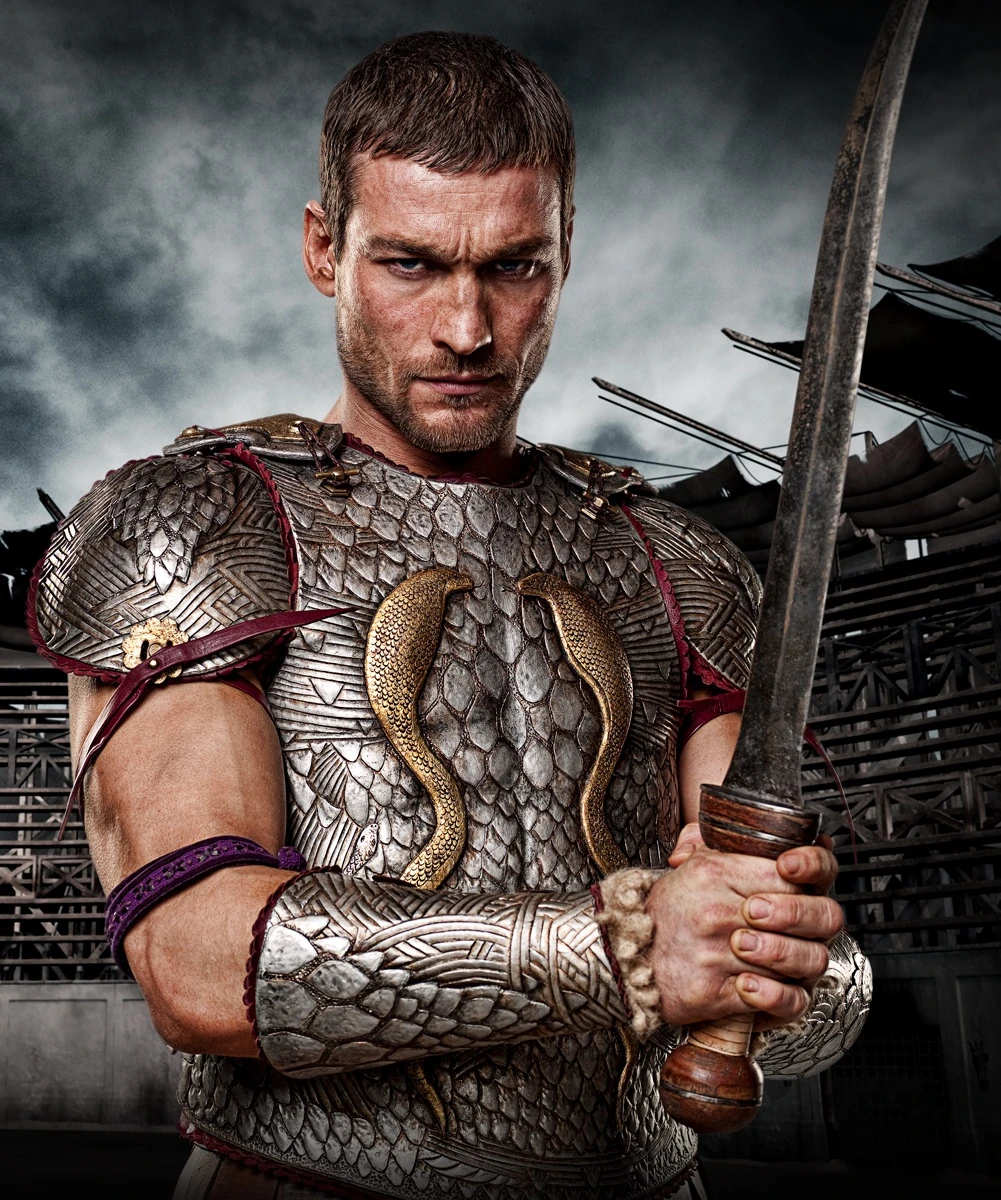Who doesn’t love Spartacus? The series is a rollercoaster of emotions, packed with drama, action, and unforgettable characters. If you’re a fan of the show, you’ve probably noticed how the names of the characters add another layer of intrigue to the story. From Spartacus himself to the lesser-known figures, each name carries a story, symbolism, and historical significance. Today, we’re going to explore the fascinating character names in Spartacus and uncover what makes them so special.
Picture this: you’re sitting on your couch, popcorn in hand, watching Spartacus fight his way through the gladiatorial arena. The names of the characters roll off your tongue, each one more intriguing than the last. But have you ever stopped to think about why these names were chosen? Is it just random, or is there a deeper meaning behind them? Stick around, because we’re about to dive deep into the world of Spartacus and uncover the secrets behind the names.
Before we get into the nitty-gritty, let’s establish one thing: the names in Spartacus aren’t just random picks. They’re carefully crafted to reflect the personalities, backgrounds, and destinies of the characters. Whether it’s Spartacus, Crixus, or Ilithyia, every name has a story to tell. So, grab your favorite drink, and let’s embark on this journey together.
Why Character Names in Spartacus Matter
Names are more than just labels; they’re windows into a person’s identity. In Spartacus, the names of the characters play a crucial role in shaping the narrative. They hint at the characters’ origins, their roles in the story, and even their fates. For example, Spartacus’s name evokes strength, rebellion, and leadership, while Crixus’s name screams passion and chaos. It’s not just about the sound; it’s about the meaning behind the sound.
Think about it: when you hear the name “Spartacus,” what comes to mind? Probably a brave warrior, a symbol of resistance, and a man who defied the odds. That’s the power of a well-chosen name. It sets the tone for the character and gives the audience a glimpse into their world. In this section, we’ll explore why character names in Spartacus matter and how they contribute to the show’s success.
The Historical Context Behind the Names
Let’s talk history for a moment. Spartacus wasn’t just a TV show; it was inspired by real events and real people. The names of the characters were carefully chosen to reflect their historical counterparts. For instance, Spartacus himself was a Thracian gladiator who led a slave revolt against the Roman Republic. His name, which means “son of Zeus,” perfectly captures his larger-than-life persona. Similarly, Crixus, a Gaulish gladiator, was known for his fiery temperament, and his name reflects that.
But it’s not just about the main characters. Even the supporting cast has names that are steeped in history. Gannicus, for example, was a real gladiator who fought in the arena, and his name means “victor.” These historical references add authenticity to the show and make it more engaging for viewers who appreciate the finer details.
10 Most Fascinating Character Names in Spartacus
Now that we’ve established why names matter, let’s take a look at some of the most fascinating character names in Spartacus. Each one tells a story, and together, they paint a vivid picture of the world of Blood and Sand. Here’s a list of the top 10 names that will leave you in awe:
- Spartacus: The name of the show’s protagonist, meaning “son of Zeus.”
- Crixus: A Gaulish gladiator whose name reflects his fiery nature.
- Gannicus: A legendary gladiator whose name means “victor.”
- Ilithyia: The wife of a Roman nobleman, whose name is associated with childbirth and femininity.
- Lucretia: A manipulative and cunning character whose name means “freedom.”
- Batiatus: The lanista who owns Spartacus, with a name that reflects his role as a trainer of gladiators.
- Varro: Spartacus’s best friend, whose name means “eloquent.”
- Nasir: A skilled fighter whose name means “helper” or “supporter.”
- Oenomaus: A former gladiator turned trainer, whose name means “swift horse.”
- Doctore: The trainer of the gladiators, whose name means “teacher.”
Symbolism in Character Names
Every name in Spartacus carries a symbolic meaning that enhances the storytelling. For example, Spartacus’s name reflects his divine origins and his role as a leader of the rebellion. Crixus’s name, on the other hand, symbolizes his passion and chaos, which often lead to conflict. Even the names of the supporting characters, like Oenomaus and Doctore, have deeper meanings that align with their roles in the story.
Symbolism in character names is not just about adding depth to the narrative; it’s about creating a connection between the audience and the characters. When viewers understand the meaning behind a name, they’re more likely to empathize with the character and become invested in their journey. In this section, we’ll explore the symbolism behind some of the most iconic names in Spartacus.
How Names Reflect Personality and Destiny
Names in Spartacus aren’t just random; they’re carefully chosen to reflect the personalities and destinies of the characters. For example, Spartacus’s name suggests a divine destiny, and his journey throughout the series proves that. Crixus’s name, with its fiery connotations, hints at his passion and eventual downfall. Even the supporting characters, like Varro and Nasir, have names that align with their personalities and roles in the story.
This connection between names and destiny is a recurring theme in Spartacus. It adds another layer of complexity to the characters and makes them more relatable to the audience. When viewers see how the names reflect the characters’ journeys, they’re more likely to become emotionally invested in the story. In this section, we’ll delve deeper into how names shape the destinies of the characters in Spartacus.
Names and Historical Accuracy
One of the reasons Spartacus stands out is its commitment to historical accuracy. The names of the characters are no exception. From Spartacus himself to the lesser-known figures, every name has been carefully researched to ensure authenticity. This attention to detail enhances the realism of the show and makes it more engaging for viewers who appreciate historical accuracy.
But historical accuracy isn’t just about getting the names right; it’s about understanding the cultural and social context in which they were used. For example, the name “Ilithyia” reflects the Roman obsession with fertility and childbirth, while “Lucretia” symbolizes the Roman ideal of freedom. These cultural nuances add depth to the characters and make them more relatable to the audience.
Long-Tail Keywords and Their Significance
When it comes to SEO, long-tail keywords are essential for driving traffic to your content. In the context of Spartacus, long-tail keywords like “character names in Spartacus,” “historical names in Spartacus,” and “symbolism in Spartacus names” can help your article rank higher in search engine results. These keywords are more specific and targeted, making them ideal for attracting readers who are genuinely interested in the topic.
But it’s not just about SEO; long-tail keywords also help you provide more value to your readers. By focusing on specific aspects of the topic, you can offer insights that other articles might overlook. For example, instead of just listing the character names, you can explore their historical significance, symbolism, and cultural context. This approach not only improves your article’s ranking but also enhances its quality and relevance.
Why You Should Care About Character Names in Spartacus
At this point, you might be wondering why you should care about character names in Spartacus. After all, it’s just a TV show, right? Wrong. The names of the characters are an integral part of the show’s storytelling, and they add depth and meaning to the narrative. By understanding the significance of these names, you can appreciate the show on a deeper level and connect with the characters in a more meaningful way.
Moreover, studying character names in Spartacus can teach you valuable lessons about storytelling, history, and culture. It can also inspire you to create your own stories with rich, meaningful names that reflect the personalities and destinies of your characters. So, whether you’re a fan of the show or a writer looking for inspiration, exploring the fascinating character names in Spartacus is definitely worth your time.
Daftar Isi
Here’s a quick guide to help you navigate through this article:
- Introduction
- Why Character Names in Spartacus Matter
- The Historical Context Behind the Names
- 10 Most Fascinating Character Names in Spartacus
- Symbolism in Character Names
- How Names Reflect Personality and Destiny
- Names and Historical Accuracy
- Long-Tail Keywords and Their Significance
- Why You Should Care About Character Names in Spartacus
- Conclusion
Conclusion
As we’ve seen, the character names in Spartacus are more than just labels; they’re windows into the world of Blood and Sand. From Spartacus himself to the lesser-known figures, each name carries a story, symbolism, and historical significance. By exploring these names, we’ve uncovered the secrets behind the characters and gained a deeper appreciation for the show.
So, the next time you watch Spartacus, pay attention to the names of the characters. You might discover something new and fascinating that you hadn’t noticed before. And if you’re a writer or storyteller, consider using meaningful names in your own work. They can add depth and authenticity to your characters and make them more relatable to your audience.
Before you go, we’d love to hear your thoughts. Which character name in Spartacus do you find the most fascinating? Leave a comment below and let us know. And don’t forget to share this article with your friends and family who love Spartacus as much as you do!


